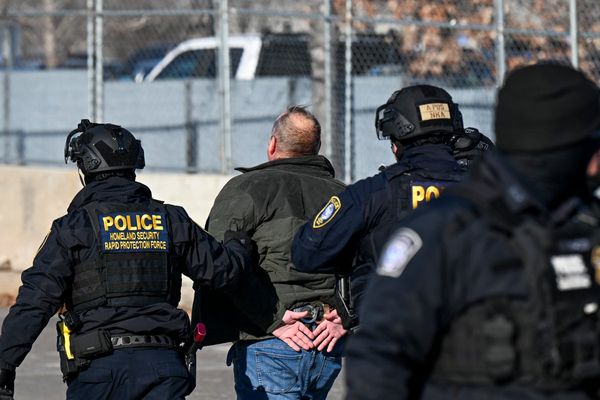
Say what you want about the guy up top lately, but Tesla's had an objectively great year on the sales front. Less great, however, is its approach to self-driving technology, which is under more regulatory and public scrutiny than ever these days. Luckily, a fix is on its way right now, but what does it bode for the future?
Welcome back to another edition of Critical Materials, InsideEVs' morning roundup of what matters in the world of electrification and car tech. (We're up to three now—look at us go!) Today we're diving into what the latest Tesla Autopilot recall means, the consolidated future of the charging industry is facing next year and the death of two smaller city-focused EVs in Europe. Let's dig in.
30%: Autopilot Recall For 2 Million Cars Adds More Driver Safeguards After NHTSA Investigation

At this point, it's almost cliché to point out that another year is about to end without Elon Musk's "full autonomy this year" claims coming true. Then again, we still have a little over two weeks to go in 2023, so anything's possible! (It isn't.) But this year will end with a major software update and recall for more than 2 million Teslas in the U.S.—which according to the AP is pretty much all of them—to add some safeguards to Autopilot following a National Highway Traffic Safety Administration investigation.
NHTSA has been investigating issues around Autopilot for the past two years. In its safety report on the recall, the agency says that if a driver fails to realize when Autopilot isn't engaged or is functioning in a limited capacity, the result could be a crash or another mishap. In essence, NHTSA is saying that Autopilot's method of ensuring drivers are paying attention may be inadequate.
The recall will be done entirely via a software update, and here's what NHTSA says that entails:
At no cost to customers, affected vehicles will receive an over-the-air software remedy, which is expected to begin deploying to certain affected vehicles on or shortly after December 12, 2023, with software version 2023.44.30. Remaining affected vehicles will receive an over-the-air software remedy at a later date. The remedy will incorporate additional controls and alerts to those already existing on affected vehicles to further encourage the driver to adhere to their continuous driving responsibility whenever Autosteer is engaged, which includes keeping their hands on the steering wheel and paying attention to the roadway.
Depending on vehicle hardware, the additional controls will include, among others, increasing the prominence of visual alerts on the user interface, simplifying engagement and disengagement of Autosteer, additional checks upon engaging Autosteer and while using the feature outside controlled access highways and when approaching traffic controls, and eventual suspension from Autosteer use if the driver repeatedly fails to demonstrate continuous and sustained driving responsibility while the feature is engaged.
Earlier this week, the Washington Post released an investigation into Autopilot mishaps that's worth a read in full. And some of the accounts and videos it features are quite scary. This is the second recall this year involving Tesla's automated driving systems.
On one hand, recalls are a good thing; it's always positive when the system works and a problem gets fixed. On the other hand, this is just one more development in an ongoing battle between Tesla and both state and federal regulators as it pushes the boundaries of automated driving technology more than perhaps any other passenger car manufacturer. (I would count Cruise's robotaxis and General Motors' cars as two different things, because there's little technology transfer between the two entities. But the latter has had scores of problems as well, showing the difficulties involved with getting autonomy to the "fully self-driving" promised land.)
Moreover, Musk has staked Tesla's future on full autonomy. He has reportedly pushed back on a more affordable EV until it can be co-developed alongside one that doesn't need a steering wheel or pedals, and has repeatedly said "solving" full self-driving is "the difference between Tesla being worth a lot of money or worth basically zero."
But between fighting California, a Justice Department investigation and industrywide challenges around autonomous tech at every level the past few years, that claim looks more and more divorced from reality every year.
If you get the Autopilot update and have thoughts you want to share with us about how it performs, get in touch.
60%: RIP To Some Great Small European City EVs

This news is of little consequence if you don't live in Europe, but they do indicate larger trends at work—literally, in this case. Today, Top Gear reports the Honda E—its adorable, retro-looking electric city car—will end production soon for good. No direct replacement is planned, as we reported earlier this year, because Honda is shifting its focus more to SUVs, including electric ones.
The Honda E does look great and many Americans were baffled that it didn't see a wider release here. But with a price tag of nearly $40,000 in our dollars and a range of just 137 miles on the European WLTP cycle, it wasn't a strong seller. Buyers in Europe who want an electric Honda can buy the bigger, still more expensive e:NY1 crossover instead.
That's a trend we're seeing across almost the entire global EV marketplace—a dearth of smaller, more affordable cars in favor of larger, more expensive vehicles. That follows the trajectory gas cars have been on for years as well. But is this really what buyers want? That's extremely debatable, although the Honda E's slow sales spoke for themselves.
Similarly, the UK's Autocar reports today that the Renault Zoe—an electric O.G. if there ever was one, on sale for 11 years—will be removed from sale in that country. It will be discontinued entirely in 2024. Though it was a common sight on European roads and is a fixture of many rideshare fleets, it was no longer compliant with current safety regulations. At least the Zoe will be replaced by the similarly compact Renault 5 E-Tech, which may even end up cheaper.
Still, I hope there's a world for smaller, more affordable EVs; the success of the Tesla Model 3 and Chevrolet Bolt in the U.S. is proof that there's more demand there than car companies think. The problem is that this doesn't track with their thirst for profit margins.
90%: The Era Of Charging Company Consolidation Is Upon Us

Quick! How many charging apps do you have on your phone? I have Tesla, EVGo, Flo, ChargePoint, Evolve+, the Shell app, Electrify America, Chargeway, EVConnect and at least a few others I was too lazy to put into one folder. How long can this fractured "fueling" experience continue for EV drivers?
Basically, the charging industry is ripe for merging, and that seems to be happening soon, Reuters reports today:
That sector is undergoing rapid consolidation, with at least 85 companies being acquired since 2017.
Many charging companies are being gobbled up by big energy companies such as Shell, Statkraft, EDF, BP, Total and Engie; hardware companies such as ABB and Schneider Electric, and other charging companies, including Blink, ChargePoint and Charge Enterprises.
A number of large-cap corporations, notably BP, Shell, ABB, Siemens and SK, also have invested heavily in EV charging startups, as have automakers Volkswagen, BMW, Mercedes-Benz, Hyundai and Geely's Volvo Cars.
That's a short story I linked to. And we don't know where all of this will lead, but a few factors are clearly at work here. One, the traditional energy companies don't want to be left out of an EV transition, so expect them to gobble up more of these charging providers. And two, everyone is girding to compete with Tesla at charging as its NACS plug becomes the industry standard in this country around 2025. It's about to be an even tougher field for smaller players.
100%: What Would Be Your Ideal Charging Experience?
For me, it would be credit card (or even cash) payments at the point of sale, or failing that, one app to rule them all—something probably coming if the charging industry wants federal grant funding. But the days of us all having a dozen or more proprietary charging apps on our phones may be over eventually, and I'd be fine with that.







